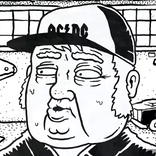|
SlothfulCobra posted:Honestly I haven't actually seen many articles going into the details of how the uighurs have been radicalizing, or what any of their stated causes may be, so I really don't know much on that front. If anyone has some details they want to explain about that, I'd be willing to listen. I posted a write up from west point's counter terrorism from 2009 that has noted a number of terrorisms involving radicalized uyghurs and separatist groups. There are a couple of other papers from later than that you can find by looking up the ETIM. Al-queda, ISIL, and Tailban all have had Uyghur fighters (Chinese origin and diaspora origin). Fake edit: here is a paper I haven't had to read past the abstract in what it says. I have it bookmarked. https://brill.com/view/journals/ic/21/4/article-p415_415.xml?language=en What other countries have dealt with separatist or terroristic radical movements better? The only other response I've seen from other countries seems to be to kill the radicalized or to use the radicalized to kill others. If you can supply a different method from another country I would like to see it so I can read about it.
|
|
|
|

|
| # ? Jun 7, 2024 15:23 |
|
Mr Hootington posted:Fake edit: here is a paper I haven't had to read past the abstract in what it says. I have it bookmarked. I read the paper quickly, in a nutshell the solution is linked to the cause of the radicalisation, ie China should decolonise and withdraw from Xinjiang, or at a minimum grant it autonomy in recognition of the fact that the people living there don't want to be ruled by the CCP (or at least that was true before Uyghur birth rates were suppressed and Han Chinese immigration encouraged to the point where the population ratio tipped).
|
|
|
|
Mr Hootington posted:Did the mass incarceration and re-education cause the radicalization or was the policy in response to the radicalization and terrorist attacks at home and abroad caused by China born Uyghurs? What the gently caress is this? Jesus christ Imagine if Europe was opening rape and beatings camps for Muslims and this was posted in defence
|
|
|
|
Somaen posted:What the gently caress is this? Jesus christ It's literally the exact justification of Apartheid resurrected after 30 years.
|
|
|
|
Alchenar posted:It's literally the exact justification of Apartheid resurrected after 30 years. What gets me is there will never be enough first hand account evidence of wrongdoing to wake up any empathy for innocent people to consider that my
|
|
|
|
Alchenar posted:I read the paper quickly, in a nutshell the solution is linked to the cause of the radicalisation, ie China should decolonise and withdraw from Xinjiang, or at a minimum grant it autonomy in recognition of the fact that the people living there don't want to be ruled by the CCP (or at least that was true before Uyghur birth rates were suppressed and Han Chinese immigration encouraged to the point where the population ratio tipped). So it calls for the balkanization of China interesting.
|
|
|
|
Interesting, I am very smart.
|
|
|
|
shitposting quotient is getting a little high in here, settle down
|
|
|
|
In an shock turn of events, the chauvinist authoritarian state's irredentist policy towards recovering the full extent of its historic imperial territory has antagonised the people living in those territories.
|
|
|
|
Somaen posted:What gets me is there will never be enough first hand account evidence of wrongdoing to wake up any empathy for innocent people to consider that my I believed the narrative about the genocide in Xinjiang until I started looking into it and was shocked at the lack of corroborating accounts for the extreme claims being made. China isn’t “my team” and there certainly is no shortage of human rights abuses happening there, but refusing to see things as black and white where the bad guys are automatically doing anything bad ascribed to them, and the only reason to doubt anything is crypto-apologism, is a facile moral philosophy. I mean, Saddam Hussein was terrible and committed heinous acts such as using chemical warfare for collective punishment. That doesn’t mean he was ripping babies out of incubators and throwing them onto the floor, and if I say I think that’s a ludicrous accusation, it doesn’t mean that I’m carrying water for him. It doesn’t mean I lack any empathy for Kuwaitis. And I would have to be deliberately obtuse to ignore that there were reasons a story like that would get play in the U.S. besides a genuine concern for universal human rights. Even the AP has reported about how mass detentions in Xinjiang are winding down. Asking what else China could reasonably have been expected to have done from a realpolitik perspective isn’t defending their actions but acknowledging the reality that they are not going to allow East Turkestan to secede. To turn it around with a different example, talking about which settlements Israel should get to keep in a two-state solution isn’t pro-Apartheid, but a recognition of the reality that there is a limit on what grievances will be addressed and what form reparations for past wrongs can realistically take. China can and should do better, and they should rein in some of their revanchism too, but there’s no scenario in which they support separatism.
|
|
|
|
you should post the ap piece you're referencing there
|
|
|
|
https://apnews.com/article/coronavirus-pandemic-lifestyle-china-health-travel-7a6967f335f97ca868cc618ea84b98b9 Yeah this definitely paints a picture that is not unbelievably hosed up. It's worth reading the entire thing quote:XINJIANG, China (AP) — The razor wire that once ringed public buildings in China’s far northwestern Xinjiang region is nearly all gone.
|
|
|
|
I'm not sure what the "extreme claims" are that have not been corroborated, the genocide deniers dropping in here haven't presented anything substantial besides that they're not ww2 style extermination camps, just rape and torture camps until you denounce Islam, which has been up in media outside of the US, such as these links that I've posted before to Novaya Gazeta which is a famous independent nnewspaper from Russia reporting on human rights for decades where journalists went to talk to Uighur and Kazakh refugees in Kazakhstan speaking of torture, rape and sterilization: https://novayagazeta.ru/articles/2020/11/24/88098-spasibo-partii-za-pytki https://novayagazeta.ru/articles/2020/04/16/84935-kitayskaya-peredelka https://novayagazeta.ru/articles/2020/11/23/88078-razdavlennye-progressom https://novayagazeta.ru/articles/2020/09/20/87175-vybratsya-iz-sintszyanya You can read it with Google translate
|
|
|
|
Herstory Begins Now posted:you should post the ap piece you're referencing there https://apnews.com/article/coronavirus-pandemic-lifestyle-china-health-travel-7a6967f335f97ca868cc618ea84b98b9 The piece is still quite critical of China, not exactly apologism, but it is based on an actual journalist visiting Xinjiang
|
|
|
|
Jesus christ that is a chilling account. In the 21st century we humans are pushing the boundaries of what's possible under a totalitarian state in ways that the old megalomaniacs could never have dreamed.
|
|
|
|
eSports Chaebol posted:https://apnews.com/article/coronavirus-pandemic-lifestyle-china-health-travel-7a6967f335f97ca868cc618ea84b98b9 It's one of the most critical things I've ever read and it specifically reflects 2 state-organized visits for journalists to xinjiang and ironically, though they've been removed now, was first published with a bunch of photos of everything looking copacetic that were in fact file photos from april 2020. Pictures which, if anything, only added to the huge dystopic vibe of the entire thing. It's bizarre as hell that that article gets trotted out by chinese nationalists regularly as if it is evidence that things are all better now (and I'm saying this as a general thing, not as a callout directed at you esports). I assume it just isn't being read by anyone referencing it 99% of the time because there's no way to read that article and come to any kind of an even vaguely positive conclusion about the situation uighurs remain in. Herstory Begins Now fucked around with this message at 01:48 on Nov 15, 2021 |
|
|
|
CaptainACAB posted:I actually read them and they say that nowhere and.in fact one of the papers is entirely about the importance of evidence and verification. Your claims are completely contradicted by your own "evidence" Directly from the released parts of the Xinjiang papers 他们犯罪了吗?会被判刑吗? Did they commit a crime? Are they going to be sentenced? 他们没犯罪,不会被判刑 They didnt commit a crime and wont be sentenced Outside of the Chinese justice system, you are verifying and gathering evidence of what exactly if there isn't a crime? I know, "extremism" (but not using the actual criminal law that exists for that already in China.) We know at least "having a Quran" has been used as a criteria for it, judging by Wang Yongzhi's statements in the same documents when he was outed from his government position for wanting to release people and not following the party. We can also be pretty sure that the 2017 leak of "Learning and Identifying 75 Religious Extreme Activities in Parts of Xinjiang" is authentic, because in 2014 the Global Times reported on its existence (though, obviously their stance was "we've set up a whole thing for identifying extremism!") Lot of it is actually illegal stuff, but the document includes many things that are normal for people all over China, and the difference or exact criteria for using it as justification to detain someone for extremism is vague enough to be arbitrary. BrainDance fucked around with this message at 01:56 on Nov 15, 2021 |
|
|
|
Mr Hootington posted:What other countries have dealt with separatist or terroristic radical movements better? The only other response I've seen from other countries seems to be to kill the radicalized or to use the radicalized to kill others. If you can supply a different method from another country I would like to see it so I can read about it. It's actually pretty uncommon to exterminate or mass-intern a whole ethnicity. Usually the bulk of any ethnic group will be unassociated with any terrorist acts made in their name regardless of their political opinions on the matter, just because the bulk of any population will usually not be involved in whatever violence happens, but when the state decides to lash out at the entire group rather than confining itself, it drives a wedge between that group and the state. It will make people feel more resentment towards the state and breed more radicals, because people radicalize fast in environments full of suffering. We give extra historical emphasis to the atrocities that are the exception, but there's been plenty of times when an ethnic group commits big crimes that didn't lead to campaigns of mass extermination. There wasn't a huge crackdown on Italian Americans just because the Mafia was a thing. With modern day separatist movements, I don't think France or Spain have done anywhere near as much with Corsicans and Catalonians as China has to Uighurs. Mr Hootington posted:So it calls for the balkanization of China interesting. People having a say over how they're ruled is good, unaccountable autocracies are bad. People who are free are more productive than people who are oppressed, and if letting people have more freedom to live as they want to is somehow an affront to the majesty of the state of the PRC, then that state sucks rear end.
|
|
|
|
SlothfulCobra posted:With modern day separatist movements, I don't think France or Spain have done anywhere near as much with Corsicans and Catalonians as China has to Uighurs. It would be pretty funny if Spanish Basque country had a token rep in the legislature, and they had to wear a running-of-the-bulls costume to convenings to demonstrate how good the Basques have it.
|
|
|
|
Mirello posted:I live in china, I''ve been to xinjiang. China has much more respect for it's minorities than america. its cultural autonomous regions are governed by minorities, even when han chinese are a majority (like in inner mongolia). going to these autonomous regions, I was immediately struck by how much of the minorities language you see everywhere, especially in publically owned places such as governmental buildings or public transit. within china, xinjiang is a huge tourist spot and uigher culture is celebrated. you could argue it's a bit kitchy or exploitative, but promoting a culture and people is an extremely odd thing to do for a government seemingly intent on "cultural genocide" Israel does the same thing with the Bedouin; driven from their home en masse in 1948, remanded to "concentration zones" subsequently, and ever since subjected to draconian legislation on how they're allowed to live and where they're allowed to build, the state still peppers the government townships with tourist experiences celebrating "traditional Bedouin culture" where Bedouin entertainers play music and dance and tell stories inside a big rustic tent. Or you can go on a camel trek with real Bedouin guides! This is funded by the government so that tourists can roll on by and say, ah, they're keeping the Bedouin culture alive, how nice. Meanwhile their land has been stolen, the infrastructure on the government reservations is extremely poor with essentials like running water and refuse disposal remaining limited, and those Bedouin still trying to live in their traditional villages (some of which predate the state of Israel) are refused recognition by the government and routinely subject to legal persecution. The Bedouin townships have the highest infant mortality rate in all of Israel. Dog-and-pony shows of traditional native culture are amongst the oldest colonial-imperialist tricks in the book. They're cheap, easy, colourful, and entirely compatible with grinding down on the actual people whose culture is supposedly being celebrated. This is not perfectly analogous to the Uighur situation - the ways in which the government is stamping down on them are somewhat different - but in many, many persecuted native cultures you will find their state persecutors funding entertainers to perform traditional dances, wear traditional costumes, sing traditional songs. It's always an intentional obfuscation.
|
|
|
|
So Peng Shuai was Disappeared, correct? What's the standard timetable for her to reappear to be put in front of cameras to apologize for the bourgeoisie lib antiharmoniousness of suggesting a high ranking party member sexually abused her?
|
|
|
|
Android Blues posted:Israel does the same thing with the Bedouin; driven from their home en masse in 1948, remanded to "concentration zones" subsequently, and ever since subjected to draconian legislation on how they're allowed to live and where they're allowed to build, the state still peppers the government townships with tourist experiences celebrating "traditional Bedouin culture" where Bedouin entertainers play music and dance and tell stories inside a big rustic tent. Or you can go on a camel trek with real Bedouin guides! This is funded by the government so that tourists can roll on by and say, ah, they're keeping the Bedouin culture alive, how nice. I wasn't familiar with the history of treatment of Bedouins in Israel. That and the treatment of Uighurs share a lot of similarities to what the United States and Canada did (and are doing) to indigenous Americans- put them into "concentration zones" (reservations), restrict practice of traditional culture and religion, boarding schools to assimilate and "educate" etc. Of course in the US and Canada there was actual physical genocide and mass killings, but the policies for the last ~150 years have been "cultural" genocide by many similar actions as you describe in Israel and what is happening in Xinjiang. I don't necessarily want to drag the China thread into discussion of US/Canadian treatment of indigenous peoples, but I have a lot of familiarity with the latter and it's strikingly similar.
|
|
|
|
Pharohman777 posted:So what about the Uighurs who have spoken up about their experiences in Xinjiang? Are they cia crisis actors? And what precisely do you mean by 'intelligence-adjacent'? I like how this question went completely ignored because the genocide deniers have no response to it.
|
|
|
|
Kavros posted:So Peng Shuai was Disappeared, correct? Fan Bingbing was 4 months. Jack Ma was 3 months. Pretty different circumstances, though. Now that the World Tennis Association is calling for an investigation into her disappearance, and with the Olympics around the corner, I can see it getting a lot more global attention. Very hard to guess how it plays out, though.
|
|
|
|
I wish I had more time but there are aspects of the situation in Xinjiang that remind me of two issues in Turkey. Turkey’s an interesting comparison on account of being a secular majority Islamic country with Turkic heritage (and, in Erdogan’s time, assistance to political groups in Xinjiang and sponsorship of salafist Uighur groups fighting in Syria). The first is of how the Kemalist governments tried to crack down on religious influence in Turkish society. This goes way back to Ataturk and his reforms, and before him to the young Turks. Not really an issue under Erdogan, of course, but his political career sprang from those issues. Here’s an account of one of the more recent waves of this type of activity and a particular intervention they favored: quote:https://www.trtworld.com/magazine/the-story-of-the-february-28-coup-as-never-told-before-34187/amp This is TRT World but it’s mostly accurate. The other is their continued oppression of Kurdish people, especially measures to attain cultural assimilation. There isn’t a handy link I have to sum up in a paragraph or two, but many of the things described in Xinjiang that are not that controversial anywhere on this forum (eg language) do sound like the types of things that have happened in Turkey, so it gives me pause even if I find the framing of the issue in western media a little suspect, because I’ve protested the Turkish government for doing similar things. The measures in Turkey against ethnic minorities and public expression of religion were deployed for similarly stated reasons of controlling extremism and diminishing the established power of organized religion. For Turkey, the measures taken to break up the power of the religious establishment in the early years of the republic probably fall outside the scope of “fighting extremism,” and even the more recent religious oppression in the 90s wasn’t really aimed at keeping under wraps — the Turkish government sponsored armed fundamentalist organizations like Hizbullah in Turkey as a counter to the (secular? not sure if that’s the tout word) Kurdistan Workers Party. I think the efforts of the state to combat armed political organizations were much more targeted against left-wing organizations (especially ethnically affiliated ones), so I see what happened in the 90s as being more a way to check broad religious influence in society without actually being aimed at or effective against extremism (but I think the Turkish and Chinese governments have very different motivations and adversaries here). I haven’t really thought these through but this is what comes to mind when I read things that seem, to me, likely to be true facts and accounts of what is going on in Xinjiang. I wish I knew more about Turkey’s sponsorship of Turkistan Islamic Party in Syria and ETIM to share. I’d love to read a detailed analysis and comparison of the situations in either country independently and in connection with Turkish/Uighur/China relationships if anyone knows of any. Sorry for being scattered e: also, nationalists are extremely stupid https://twitter.com/HDNER/status/616266294627799040?s=20 quote:
Uighurs in Turkey generally face discrimination because there are people who think they are (Han) Chinese for having epicanthic folds and need to be taught a lesson. mawarannahr fucked around with this message at 05:25 on Nov 15, 2021 |
|
|
|
Can we debate the existence of any genocide, or just this one?
|
|
|
|
lots of authors have pointed out that provoking Muslim radicalism in Xinjiang was something Chinese policy consciously pursued in the 1980s as 1) a buffer to the very real invasion of Afghanistan next door by hundreds of thousand of Soviet troops, and 2) a way to compensate for the much more severe death toll and cultural desecration of the Great Leap Forward/Cultural Revolution period just over a decade earlier (with death tolls and cultural destruction far greater than any sane figures proposed for Xinjiang today - these are "within living memory" losses, fwiw) post-Soviet withdrawal, from 1989 to 2001 one sees a reversal in policy, with China instead explicitly pinning 'separatism' on the United States and Germany: "Separatist forces have been the main factor for instability in the region, and the root cause of instability lies in the attempt by the USA and other countries to split and subvert our country" - Wang Fang, Minister for Public Security in 1989 (as opposed to the June democracy movement, i.e., Tiananmen Square, which did not resonate in Xinjiang). in 2001 this then inverts abruptly to link with the US-led GWOT, with China now pivoting to blaming Islamic extremism in the particular rather than regional separatism in the general. Some kind of repression was always inevitable given the dicey history and the commitment - since the 1990s - that the region must be Han-ified to to prevent a Soviet-style disintegration, but the form it took probably has a deep link to the way the Western world conceived of the GWOT. In another universe Xinjiang shakes out a lot like the Chechen war - a couple of uprisings, brutal wars to put it down, tens of thousands dead, city blocks shelled, etc. - but in the end it's a return to government by local ethnic partisans loyal to the center, who continue to maintain their own vigorous regional autonomy not tantamount to independence.
|
|
|
|
Thorn Wishes Talon posted:I like how this question went completely ignored because the genocide deniers have no response to it. They have a response, it just looks very bad when written out among non-freaks. Usually they just make an aside that Uighurs are CIA funded radical extremists and leave the "they deserve it" as the quiet part
|
|
|
|
For what its worth, I would honestly like to have a discussion on the nature of the genocide in Xinjiang, up to and including whether or not it's actually is a genocide, as opposed to forced labor camps targeted on ethnic grounds etc, but the mods never got back to me when I asked whether or not this would be tolerated in dnd during the feedback thread, so such is life
|
|
|
|
A big flaming stink posted:whether or not it's actually is a genocide, as opposed to forced labor camps targeted on ethnic grounds 
|
|
|
|
Alchenar posted:I read the paper quickly, in a nutshell the solution is linked to the cause of the radicalisation, ie China should decolonise and withdraw from Xinjiang, or at a minimum grant it autonomy in recognition of the fact that the people living there don't want to be ruled by the CCP (or at least that was true before Uyghur birth rates were suppressed and Han Chinese immigration encouraged to the point where the population ratio tipped). Is your position that other countries should do the same for any minority which does not want to be ruled by the government?
|
|
|
|
Orange Devil posted:Is your position that other countries should do the same for any minority which does not want to be ruled by the government? "Minority" seems both factually incorrect and an important point of distinction.
|
|
|
|
Orange Devil posted:Is your position that other countries should do the same for any minority which does not want to be ruled by the government? Yes. If there is an ethnic group in your country that is a majority of a distinguishable region and does not want to be part of your country then they should be permitted to separate. States only have a right to exist via the consent of their citizens and they don't have a right to pretty borders on a map. e: \/\/ if it was just forced labour camps then you could in theory have a siloed conversation about whether that would cross the threshold to be genocide in international law or would just be a crime against humanity other than genocide, but that conversation would be dishonestly excluding the forced migration, the destruction of cultural and religious sites, the forced sterilization etc should push any fair minded observer over the line. And even if you did decide to ignore all the other stuff and say 'but what if it's just ethnic forced labour camps' that's still a crime against humanity. Alchenar fucked around with this message at 10:08 on Nov 15, 2021 |
|
|
|
You skipped some words there, but yeah, basicallythat attitude is what I'm getting at. It's impossible to have any debate right now since it's very unclear whether actual pushback on how bad the genocide is or is not will result in moderation on it's "defenders".
|
|
|
|
A big flaming stink posted:For what its worth, I would honestly like to have a discussion on the nature of the genocide in Xinjiang, up to and including whether or not it's actually is a genocide, as opposed to forced labor camps targeted on ethnic grounds etc, but the mods never got back to me when I asked whether or not this would be tolerated in dnd during the feedback thread, so such is life Do you think any of the PRC activities in Xinjiang are intended to destroy part of the Uyghur people? Do you think those activities are (at least) causing serious mental harm to Uyghur people?
|
|
|
|
Like, it's fine if this thread is exclusively the "post about how loving lovely the prc is" thread, but I think it's a little rich to complain about genocide deniers being cowards, or whatever, if that's the actual intent of this thread
|
|
|
|
Smeef posted:Do you think any of the PRC activities in Xinjiang are intended to destroy part of the Uyghur people? I have a rather complicated view on this, and I'm not comfortable talking about it in full here since I don't know whether or not posting it will get me probated.
|
|
|
|
e: actually that was needless.
|
|
|
|
Orange Devil posted:Is your position that other countries should do the same for any minority which does not want to be ruled by the government? Circling back to this, you don't have to have a perfect solution for how to unscramble the eggs after settler colonialism has done its work to decry settler colonialism in progress.
|
|
|
|

|
| # ? Jun 7, 2024 15:23 |
|
The clear threshold that I've seen for probations is aggressively insulting other posters while screaming incoherently about Zenz, claiming Posting Victimhood in this thread lmao We can have a little genocide denial as a treat, sometimes even a lot of denial
|
|
|























